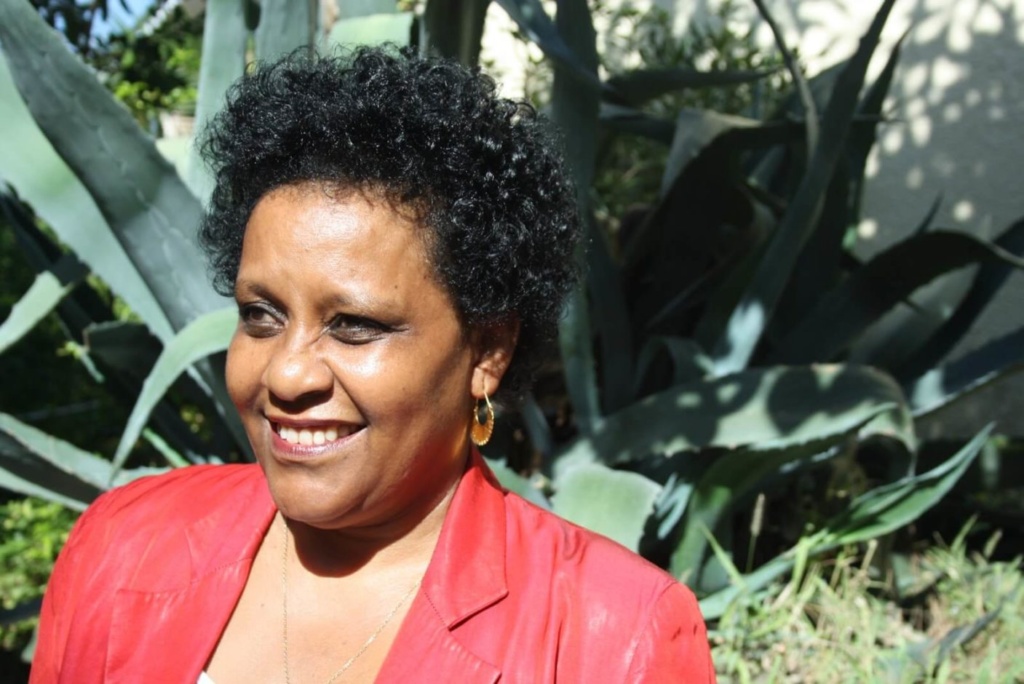The Poetry Translation Centre (PTC) have just published Aulò! Aulò! Aulò!, Ribka Sibhatu’s latest collection which includes recent poems including some of her efforts to record the oral folklore and myths of Tigrinya tradition, and some of her earliest taboo-breaking lyric poems. The works in this edition have been translated by the acclaimed poet and translator André Naffis-Sahely and are presented alongside original texts in Tigrinya, Amharic and Italian. Aulò! Aulò! Aulò! is the winner of a PEN Translates award.
Ribka Sibhatu writes in Tigrinya and Italian. Her poetry reflects on the immigrant experience in Europe. Born in Asmara, Eritrea, in 1962, she was imprisoned for a year in 1979 and then fled the country in 1980. Travelling first to Ethiopia and then to France, Ribka Sibhatu moved to Italy in 1996 and settled in Rome, where she has lived ever since. She holds a Ph. D in communication studies from Rome’s La Sapienza.
Ribka Sibhatu’s first published work was Aulò! Canto Poesia dall’Eritrea (Sinnos, 1993), a collection of lyrics and prose poems originally written in Tigrinya and translated by the author into Italian. This bilingual meditation on her past life in Eritrea and subsequent experience as a migrant was followed in 1999 by Il Cittadino che non c’è. L’immigrazione nei media Italiani (EdUP): a sociological look at the Italian media’s coverage of immigrant communities. In 2012 she published Il numero esatto delle stelle e altre fiabe eritree, Sinnos A bilingual Italian-Tigrigna collection of Eritrean fairy tales. Ribka Sibhatu speaks five languages and currently works as a trainer, consultant and interpreter of Italian Court and other international organizations.
Her 2009 collection Aulò has been likened to Walt Whitman’s Leaves of Grass and offers a remarkable personal achievement in giving lyric expression to the Eritrean oral poetic tradition. The former editor of Modern Poetry in Translation, Sasha Dugdale, has written: “Ribka is a really important activist-poet for our times”. Ribka has devoted a considerable amount of her creative energies to the assemblage and recording of Eritrea’s folkloric canon, a body of oral literature which has been handed down through the ages in the form of ‘aulòs’, which literally means ‘Please give me permission! I have something to say publicly in rhyme!’
Naffis-Sahely has worked closely with Sibhatu for over 10 years, making translations of her poems and fables to bring them to the attention of English speaking audiences. Six of his translations of Sibhatu’s works appear on the PTC website, interestingly in original language, bridge translation, and final translation, together with notes about the poem and its translation. The poem My Abebà, which was read at the Launch Event, is particularly interesting as Charles Cantalupo, a well known translator of Eritrean poetry, has rather cheekily put his English translation of My Abebà, which he made with Ghirmai Negash, in the comments.
The Poetry Translation Centre’s World Poet Series showcases the most exciting living poets from Africa, Asia and Latin America. The works in this edition have been translated by the acclaimed poet and translator André Naffis-Sahely and are presented alongside original texts in Tigrinya, Amharic and Italian, with an afterword by Sasha Dugdale.

